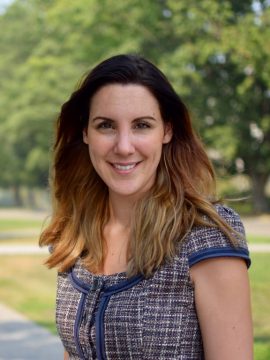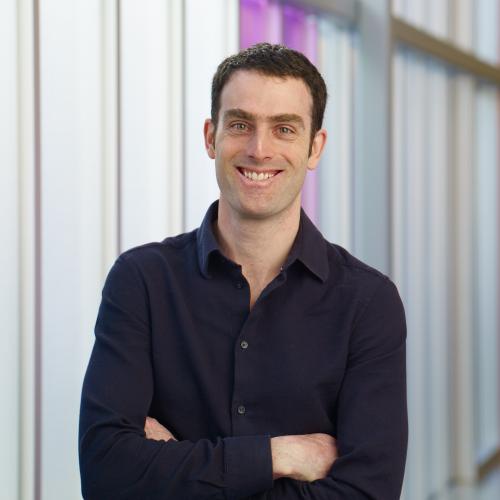
The Women’s Health Research Institute (WHRI) is very pleased to congratulate the recipients of the 2021 Women’s Health Research Institute Catalyst Grants. This competition was funded thanks to the dedicated support of the BC Women’s Health Foundation. One of seven awards for this year’s competition was funded by CIHR’s Sex and Gender Chair Program to support a biomedical health research project involving investigations in female animals.
This grant competition provides support for pilot studies in women’s and newborn’s health, which aim to generate preliminary data; test new approaches, methodologies or tools; bring new teams together; and/or support new research in women’s and newborn’s health from established researchers.
This competition has two applicant streams which are evaluated separately from one another: the Academic Researcher stream and the Clinician-Investigator stream.
Academic Researcher Stream Recipients

PROJECT TITLE:
A Woman’s Journey to Parenthood: Memory, Self-Schema, and Well-Being During Fertility Treatment
PRINCIPAL INVESTIGATOR:
Daniela Palombo, Assistant Professor, Department of Psychology, University of British Columbia
CO-INVESTIGATOR:
Samantha Dawson
SUMMARY:
Adulthood is marked by a significant transitionary role for many, namely the transition to parenthood. Parenthood is a cherished goal for many individuals, yet approximately one in six Canadian couples experience infertility (the involuntary absence of conception). Half of struggling couples report that their journey through infertility is the most stressful time of their lives and many seek fertility treatments as a solution. The journey can be characterized by joy and excitement (e.g., following news of conception), but also distress and sadness (e.g., with news of a failed treatment or pregnancy loss). This proposal examines how significant infertility experiences are remembered, and how such memory is shaped by social support factors. We also ask how memory of infertility experiences might shape a woman’s identity, and their well-being. Elucidating links between memory, identity, social support, and well-being in women seeking fertility treatment can ultimately be used to help women and couples better navigate their fertility journey, protecting them against reduced quality of life. Indeed, knowledge gains from this work could foster strategies for more positive interactions among women and their medical team. Thus, this work is highly relevant to the general public (e.g., women who are undergoing infertility treatment or a difficult medical issue) and healthcare providers (e.g., infertility related medical practitioners). This research will also yield new knowledge for scholars in cognitive, clinical, and social psychology who are interested in the complex interplay among these topics.

PROJECT TITLE:
Measuring gender equity within the relationships of young women and gender non-binary youth in British Columbia, Canada: Implications for gender transformative policy and programming in Canada
PRINCIPAL INVESTIGATOR:
Angela Kaida, Associate Professor, Faculty of Health Sciences, Simon Fraser University
CO-INVESTIGATORS:
Kalysha Closson and Valerie Nicholson
SUMMARY:
Young women experience high levels of gender inequities that result in numerous deleterious health outcomes, including violence. To address critical data gaps in the advancement of gender equity for women in all our diversity, this study will engage with young women and gender non-binary youth in British Columbia (BC) to: 1) Create a youth participatory approach to gender equity measurement development via a youth advisory committee (YAC); 2) Examine perceptions of existing gender equity measures; and 3) Identify recommendations for adapting and developing gender equity measures for use among diverse young women and gender nonbinary youth. The YAC will be formed using community-based hiring practices to ensure meaningfully youth participation across the proposed project (obj. 1). Using purposeful sampling, we will recruit 25 youth aged 16-29 with diverse ethnic/racial and socio-economic backgrounds, sexual orientations, genders (cis, trans and gender non-binary inclusive), and relationship types (e.g., open, polyamorous). Cognitive interviews will assess youth perceptions of 2-5 commonly used gender equity measures, selected by the YAC. In collaboration with the YAC, data will be analyzed using best cognitive interviewing practices (obj. 2/3). Recommendations for scale adaptations and development will be made to reflect the diverse realities of young women and gender non-binary youth in BC. This BC-based cohort will be established within a participatory global youth project aimed at addressing data gaps to better understand, effectively monitor progress, and ultimately dismantle societal power structures, norms and practices that prevent a diversity of girls and women from accessing and enjoying equal rights.

PROJECT TITLE:
Using Nanomedicine to Target Mutant p53 for the Treatment of Triple Negative Breast Cancer Patients
PRINCIPAL INVESTIGATOR:
Nikki Salmond, Postdoctoral Fellow, Faculty of Pharmaceutical Sciences, University of British Columbia
CO-INVESTIGATORS:
Karla Williams and Shyh Dar-Li
SUMMARY:
One in eight women will be diagnosed with breast cancer within their lifetime. There are different types of breast cancer, some of which have carefully designed therapies that that effectively treat the disease. A specific breast cancer sub-type called triple negative is responsible for up to 15% of all breast cancer cases. Unfortunately, individuals diagnosed with triple negative breast cancer have fewer treatment options and are more likely to have their disease come back despite treatment. We know that over 80 % of triple negative breast cancer tumors have a key defect within their p53 tumor suppressive pathway – a pathway that would normally prevent tumors from growing. By turning off the p53 pathway cancer cells can keep growing unchecked, but if we can turn p53 back on the cancer cells will initiate a suicide mechanism and undergo cell death. We plan to use a unique delivery system to restore the p53 suicide pathway in triple negative breast cancer cells and to ultimately destroy the tumor. This project has the potential to develop one of the first targeted therapies for triple negative breast cancer and will contribute valuable work towards improving the overall survival of triple negative breast cancer patients.
Clinician-Investigator Stream Recipients

PROJECT TITLE:
Understanding healthcare delivery of second and third trimester abortion for pregnancy complications in Canada
PRINCIPAL INVESTIGATOR:
Jessica Liauw, Clinical Assistant Professor, Department of Obstetrics and Gynaecology, University of British Columbia
CO-INVESTIGATORS:
Jennifer Chisolm, Brigid Dineley, Madeleine Ennis, Liv Knutzen, Elise Lavoie Label, Robin Leung, Sarah Munro, Regina Renner, Julie Robertson, and Emily Wiesenthal
SUMMARY:
Second and third trimester abortion is a critical yet complex health service. In Canada, when patients are diagnosed with serious fetal anomalies and/or maternal complications, most are referred to a Maternal Fetal Medicine centre on their care pathway to accessing second and third trimester abortion services. However, knowledge of how these services are delivered across maternal fetal medicine centres remains limited, which prevents us from promoting optimal care. The purpose of this study is to better understand the service delivery of second and third trimester termination of pregnancy for maternal or fetal complications in Canada. Through semi-structured interviews, we will seek healthcare providers’ perspectives on how this care is delivered and the facilitators of and barriers to this care. This project has the potential to gain unique insight into the provision of abortion services for fetal or maternal complications in Canada and foster opportunities for collaboration among health care teams across the country. Ultimately, we aim to improve the delivery of comprehensive and equitable services for patients seeking second and third trimester termination of pregnancy.

PROJECT TITLE:
iOAT-APP: injectable Opioid Agonist Therapy Administration in a pregnant or Perinatal Population
PRINCIPAL INVESTIGATOR:
Charissa Patricelli, Clinical Associate Professor, Department of Family Practice, University of British Columbia; Medical Director, Perinatal Addictions, BC Women’s Hospital + Health Centre
CO-INVESTIGATORS:
Karen Urbanoski, Arianne Albert, and Nicole Carter
SUMMARY:
Injectable opioid agonist therapy (iOAT) is the highest intensity treatment option currently available in Canada for those with severe opioid use disorders (OUD). However, very little is known about the use of iOAT in pregnancy. FIR Square at BC Women’s Hospital (BWCH) is the first treatment centre in Canada to develop a clinical protocol for the use of iOAT in the perinatal period. The iOAT-APP study presents experts at BCWH and the WHRI with a unique opportunity to gather the first scientific data on iOAT in pregnancy. Study participation will involve interviews and surveys with patients who are offered iOAT on FIR as a treatment option, along with medical chart reviews on mothers and babies. Participants will have four study visits in total to measure changes over time. iOAT is a life-saving treatment, and the results of this study will inform clinical decision-making around iOAT in pregnancy, and will form the foundation for future research in this area.

PROJECT TITLE:
Maternal Immune Signalling, Depression, and Antidepressants during Pregnancy
PRINCIPAL INVESTIGATOR:
Tim Oberlander, Professor, Department of Pediatrics, University of British Columbia
CO-INVESTIGATORS:
Liisa Galea, Joanne Weinberg, Tamara Bodnar, and Wansu Qiu
SUMMARY:
Up to twenty percent of new mothers experience perinatal depression (PND) and selective serotonin reuptake inhibitors (SSRIs) are the current treatment of choice. The Oberlander and Galea laboratories study the effects of maternal antidepressant use on early development using animal models and human subjects. Our research shows that antenatal SSRI treatment is associated with reduced neuroplasticity in the mother and altered stress regulation, psychomotor development, and anxiety in exposed children, which is independent of prenatal maternal mood. Meta-analyses indicate that inflammatory biomarkers including cytokines (e.g., IL-6, TNF-a, IFN-g, IL-1b) and vascular markers (e.g., VEGF) are elevated in non-treated depressed individuals, suggesting a link between inflammation and depression. Importantly, SSRI treatment dampens inflammation in individuals in remission from major depressive disorder, whereas treatment resistant patients show elevated cytokine levels. However, no studies to date have examined the effects of SSRIs on inflammatory and vascular markers during the perinatal period. This is surprising, as evidence indicates that these biomarkers are elevated during pregnancy, which underscores why the perinatal period is a time of high risk for depression. Our study aims to fill these gaps. This proposal will examine the independent and interactive effects of mood disturbances and SSRIs on a broad range of inflammatory biomarkers and markers of vascular signaling in pregnant women.
Biomedical Project Involving Investigations in Female Animals Recipient

PROJECT TITLE:
Does exercise mitigate the effects of advanced maternal age on pregnancy outcomes in a mouse model?
PRINCIPAL INVESTIGATOR:
Julian Christians, Professor, Department of Biological Sciences, Simon Fraser University
CO-INVESTIGATOR:
Angela Devlin
SUMMARY:
Average maternal age is increasing, and yet the risks of low birthweight and stillbirth rise with age. Physical activity during pregnancy offers numerous benefits, but whether it mitigates age-related risks has not been studied. This question is challenging because of confounding factors, e.g., if there are associations between age at pregnancy, physical activity and socioeconomic status, it is difficult to tease apart which factor affects pregnancy outcomes. Animal models are therefore required, and the effects of advanced maternal age in mice parallel those in humans. We propose to test whether exercise mitigates adverse effects of advanced maternal age using a mouse model. We will examine three groups of female mice: young, old, and old with exercise. All groups will be mated with young males to control paternal effects. We will compare pregnancy rates, fetal survival, fetal growth, and placental development among groups to test whether physical activity improves outcomes in older mice. We will also study differences in the extent to which genes are switched on within the uterus, since the uterine environment influences placental development and, in turn, fetal growth. The creation of this model will allow study of the mechanisms by which physical activity may affect outcomes in older mothers, addressing questions such as: who will benefit most, what types of exercise are best, etc. This work therefore promises to catalyze the development of low-cost, low-risk, nonpharmacological interventions for older people seeking to conceive.